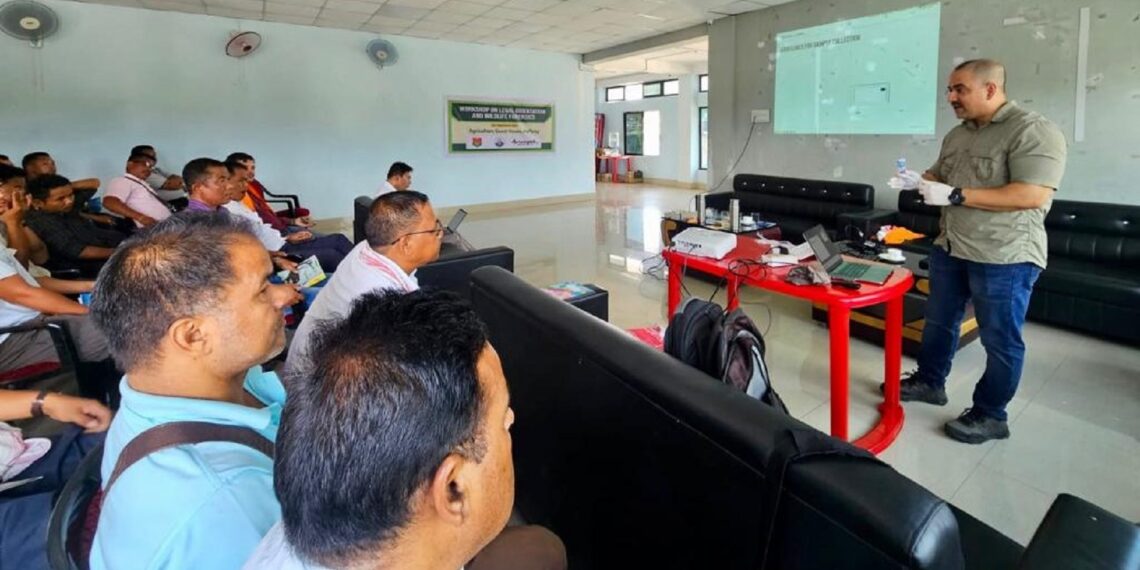GUWAHATI: A workshop focusing on wildlife crime investigation through biological evidence and the application of DNA technology in legal proceedings took place in Haflong, recently.
Organised at the Agricultural Guesthouse Auditorium under the patronage of the Dima Hasao Forest Department in association with Aaranyak, a biodiversity conservation organisation, the workshop aimed at equipping the forest officers in tackling wildlife crimes more effectively.
Attended by forest officers, including rangers, deputy rangers, and foresters from 12 ranges of the East and West Divisions of the Dima Forest Department, the workshop provided a comprehensive understanding of the Wildlife (Protection) Act 1972 and its recent amendments.
Tuhin Langthasa, DFO of West Division Dima Hasao, who inaugurated the workshop, acknowledged the importance of a sound understanding of legal provisions for effective wildlife crime investigations. He also underscored the significance of scientific DNA sample collection, which would lead to compelling convictions in court.
Ajoy Kumar Das, Senior Law Consultant of Aaranyak and a Gauhati High Court advocate, elucidated the categorisation of species under the new schedules and highlighted the implications of the 2022 amendments to the Act. He also delved into the Wildlife (Protection) (Assam Amendment) Act, 2009.
Senior scientist, Dr Udayan Borthakur, highlighted the significance of DNA technology in wildlife crime investigations, emphasising on the correct techniques for sample collection and ensuring the uninterrupted chain of custody during forensic examinations.
In a gesture that promises to boost the investigative capabilities of the Dima Hasao Forest Department, Borthakur also handed over a forensic DNA sampling kit developed by Aaranyak’s Wildlife Genetics Laboratory.
Advocate Ajoy Kumar Das, while covering the documentation process in wildlife crime investigations, highlighted the importance of accurate and methodical preparation, showcasing formats of various legal documents and emphasising the role of complaint petitions over charge-sheets in wildlife crime cases.
Dipankar Lahkar, a senior Aaranyak official, concluded the programme with a vote of thanks, while Nitul Kalita, a project officer at Aaranyak, was credited for his role in the workshop’s success.















